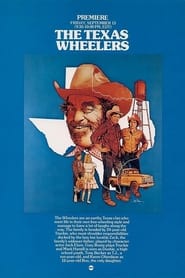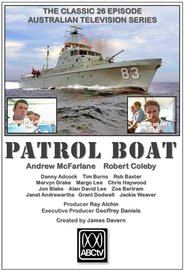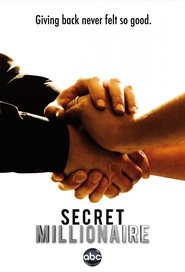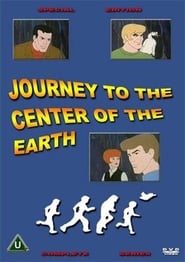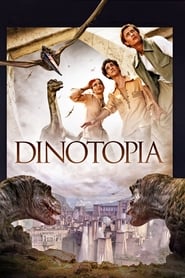Abc TV Series - Page 71
-
The Chair
2002
The Chair
2002
The Chair is a game show television program that premiered on ABC in January 2002. It was hosted by former tennis champion John McEnroe and directed by Michael A. Simon. Among the show's writers was writer/actress Teresa Strasser, who had served on ABC's Who Wants to Be a Millionaire? and later hosted While You Were Out after The Chair was cancelled. -
The Texas Wheelers
1974
star 5The Texas Wheelers is an ABC situation comedy television series that aired in 1974 and 1975. The series, produced by MTM Enterprises, is about the cantankerous but lovable Zack Wheeler, a long-lost father who returned to raise his children Truckie, Doobie, Boo, and T.J. in rural Texas after their mother died. The show was not successful, due to being broadcast against the second half of NBC's The Rockford Files, and was canceled after four episodes in the fall of 1974. An additional four episodes were aired in June and July 1975. The show is notable as one of MTM's few flops, and for the well-known actors in its cast, including Jack Elam as Zack, Gary Busey as Truckie, Mark Hamill as Doobie, Tony Becker as T.J., and Lisa Eilbacher as the Wheelers' friend Sally. The theme song for the show was "Illegal Smile" by John Prine. -
To Save Our Schools, To Save Our Children
1984
To Save Our Schools, To Save Our Children is a three hours television documentary on public education that aired on ABC on September 4, 1984 . It focus on three critical elements of the education system: students, teachers, and the tax-paying members of local communities. -
Patrol Boat
0000
star 5Patrol Boat is an Australian television drama series that screened on the Australian Broadcasting Corporation. Patrol Boat was created by James Davern and two series were produced, in 1979 and 1983, with a total of 26 episodes. Patrol Boat was about the activities of the crew of a Royal Australian Navy patrol boat which patrolled Australia's coastline. The series was produced with the co-operation of the Royal Australian Navy. Two fictional RAN patrol boats were depicted in the series. Attack class patrol boat HMAS Ambush was used in the first season, with filming taking place during 1978 and 1979 around Sydney Harbour, Pittwater, Ku-ring-gai Chase, and the Hawkesbury River. For the second season, the crew transferred to the newer Fremantle class patrol boat HMAS Defiance. The series is similar to the BBC series Warship, screened by the Australian Broadcasting Corporation from 1976, before Patrol Boat. Although the 2007 drama Sea Patrol is based on the same subject, it is not intended to be a follow on to Patrol -
Boston Med
2010
Boston Med
2010
From operating rooms to end-of-life meetings, the documentary series explores the culture of doctors and nurses and the conversations that happen outside the patient's earshot. -
ABC Barn Dance
1949
ABC Barn Dance
1949
ABC Barn Dance is an early country and Western music show on American television, a spin-off of the popular radio program National Barn Dance. It also included some folk music. The show aired on Monday nights from February 21–November 14, 1949 on ABC-TV. Originally broadcast from 8:30–9 p.m. Eastern Time, it was moved to 9 p.m. and then to 9:30 p.m. Filmed at the Eighth Street Theater in Chicago, Illinois, the weekly variety show was hosted by Hal O'Halloran and Jack Stillwell. Several of the radio program's performers appeared, including the Sage Riders, Lulu Belle and Scotty, Cousin Tifford, Bob Atcher, the DeZurik Sisters and Holly Swanson. -
American Detective
1991
American Detective
1991
American Detective is a police documentary television series broadcast by ABC in the United States from 1991 to 1993. American Detective features detectives in major U.S. urban areas working on high-profile criminal cases which were often drug-related. The program often allows glimpses into the personal lives of the detectives. During the latter part of the program's run, Lieutenant John Bunnell of the Multnomah County, Oregon Sheriff's Department, who had been featured in a number of the program's earlier shows, served in the role of host, even taking the viewers on a trip to Russia to look at his counterparts there in February 1993. -
What's Going On
0000
What's Going On
0000
What's Going On? is an American game show that aired for five weeks beginning on November 28, 1954. The show aired on ABC and was a Mark Goodson-Bill Todman production. It was sponsored by Revlon, and originated live from New York City. Lee Bowman served as host of the show. There were six celebrities involved in the game: Hy Gardner, Audrey Meadows, Gene Raymond, Kitty Carlisle, Cliff Norton, and Susan Oakland. -
Secret Millionaire
2008
star 6Some of America's wealthiest people leave behind their lavish lifestyles, sprawling mansions and luxury jets, conceal their true identities, and go to live and volunteer in some of the most impoverished and dangerous communities in America. Their mission is to discover the unsung heroes of America—deserving individuals who continually sacrifice everything to help those in need. At the end of the week, in an emotional and dramatic climax, they reveal their true identities and change lives forever. -
Cartoon All-Stars to the Rescue
1990
star 10Cartoon All-Stars to the Rescue is an American animated drug prevention television special starring many of the popular cartoon characters from American weekday, Sunday morning and Saturday morning television at the time of this film's release. Financed by McDonald's and Ronald McDonald Children's Charities, the special was originally simulcast on April 21, 1990 on all four major American television networks: ABC, NBC, FOX and CBS, and most independent stations, as well as various cable networks. McDonald's also distributed a VHS home video edition of the special, produced by Buena Vista Home Video, which opened with an introduction from President George H. W. Bush, and First Lady Barbara Bush. The show was produced by the Academy of Television Arts & Sciences Foundation and Southern Star Productions, and was animated overseas by Wang Film Productions Co., Ltd.. The musical number "Wonderful Ways to Say No" was written by Howard Ashman and Alan Menken, who also wrote the songs for The Little Mermaid, Beauty and the -
Journey to the Center of the Earth
1967
star 5.3Journey to the Center of the Earth is an American science fiction animated television series, consisting of 17 episodes, each running 30 minutes. Produced by Filmation in association with 20th Century Fox, it aired from September 9, 1967 to September 6, 1969 on ABC Saturday Morning. It featured the voice of Ted Knight as Professor Lindenbrook. It was later shown in reruns on Sci Fi Channel's Cartoon Quest. It appears to have taken the 1959 film, Journey to the Center of the Earth, as its starting point rather than Jules Verne's original novel, e.g. including the character of Count Saknusssen and Gertrude the duck. However it moved even further away from Verne's novel than the 1959 film. -
Two Marriages
1983
star 10Two Marriages is an American dramatic television series that aired from August 23, 1983 until April 26, 1984. -
Boston EMS
2015
Boston EMS
2015
First responders are followed as they rush to the aid of people in need in this series, which premieres with their search for a possible train-crash victim. Also: A car accident leaves a bicyclist dead; a man pulls himself out of a wrecked vehicle before it erupts in flames; and a barefoot homeless man receives an unexpected gift. -
Dinotopia
2002
star 5Frank Scott, a wealthy American, crashes his plane into the Caribbean. His two teenaged sons, Karl and David, survive, only to find themselves castaways on Dinotopia. Karl and David are constantly at odds, even as they struggle to adjust to life in their strange new world where talking dinosaurs live side by side in an uneasy alliance with humans. -
Bold Journey
1956
Bold Journey
1956
A travelogue program broadcast by ABC television in the United States during the late 1950s, consisting of films taken by explorers and adventurers during their travels to remote parts of the world. The films were usually set up by an interview between a program host and the guest, who then narrated his film with the aid of helpful questions from the host. -
Everybody's Talking
0000
Everybody's Talking
0000
Everybody's Talking was an American game show which aired on ABC from February 6 to December 29, 1967. Former dance-party host Lloyd Thaxton was the host; Wink Martindale and Charlie O'Donnell were the announcers. Thaxton typically closed each episode by saying, "Keep watching, and keep listening, because everybody's talking!" Veteran producer Jack Barry created this show during a brief period working for Goodson-Todman. Due to lingering bad publicity concerning his possible involvement in the rigging of Twenty One and Tic-Tac-Dough in the late 1950s, he asked that his name be kept off the credits. Jerome Schnur Productions packaged the show instead. It was the last American daytime television program aired in Black and White despite the big 3 commercial networks converted to color by September 1967. -
Double Talk
0000
Double Talk
0000
Double Talk is an American game show that aired on the ABC network in 1986. Henry Polic II hosted this word game created by Bob Stewart, which contained elements of the previous Stewart-produced game show Shoot for the Stars. Bob Hilton was the announcer for the show's first two weeks and was replaced starting on the third week by Johnny Gilbert. Near the end of its run, the show was retitled Celebrity Double Talk. However, no format changes took place with the change in the show's title. -
Celebrity Time
1948
Celebrity Time
1948
Celebrity Time was an American game and audience participation television series which aired originally aired on CBS and ABC from November 1948 to September 1952. The original host was Douglas Edwards. -
The Superman/Batman Adventures
0000
The Superman/Batman Adventures was a television series that aired on USA Network in 1995. It was later aired on Cartoon Network and Boomerang. The series featured edited episodes of various seasons of the Super Friends, as well The New Adventures of Superman, The Superman/Aquaman Hour of Adventure, and The Batman/Superman Hour. This show is noteworthy since it featured the 1983 episodes of the Super Friends for the first time on American television.

